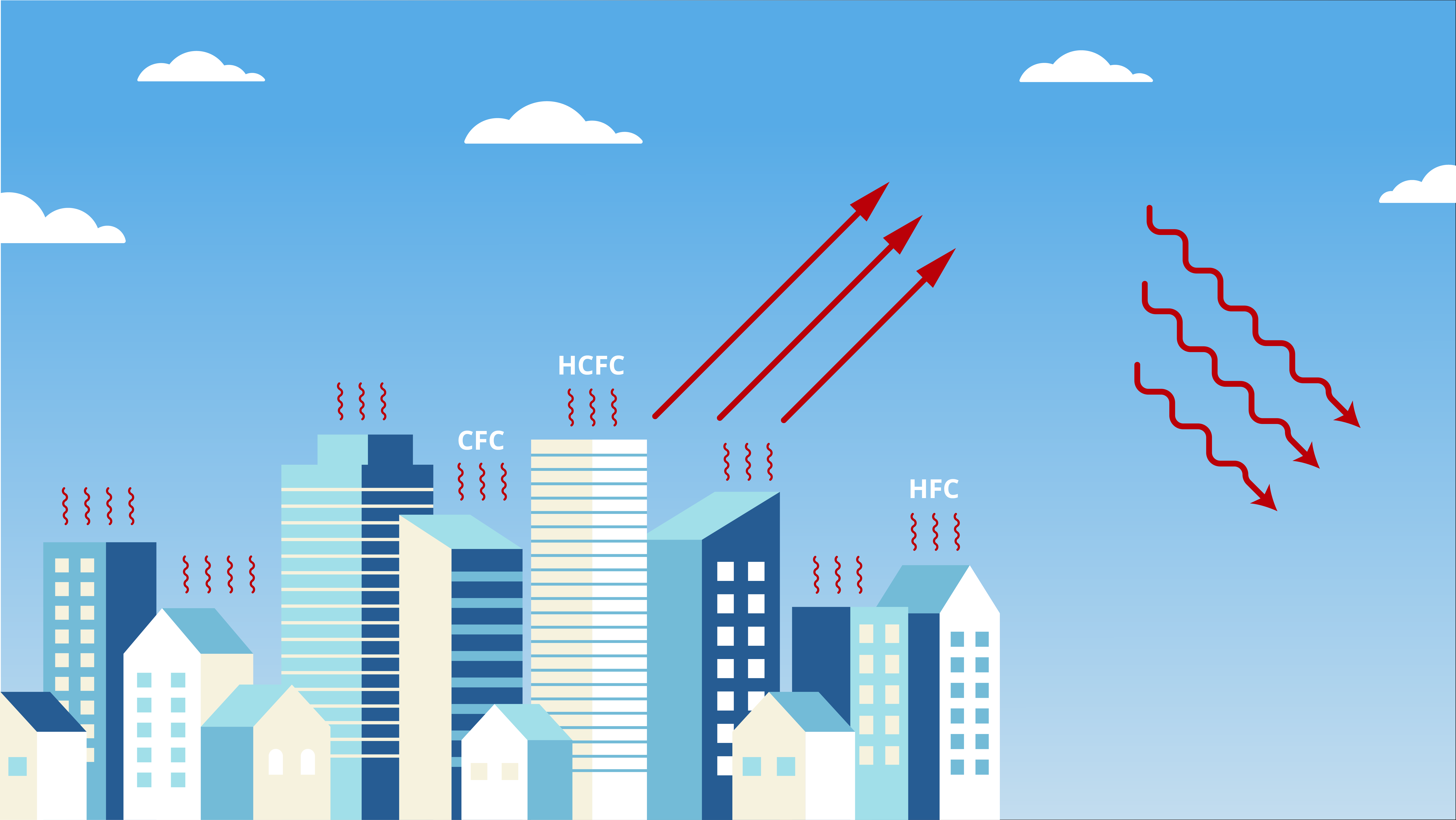
Texas A&M has been announced as a recipient of a $1.5 million grant from the Inflation Reduction Act to address climate-damaging hydrofluorocarbons.
The grant is among the five projects funded by the United States Environmental Protection Agency (EPA) totaling $15 million and includes three other universities: the University of Washington, Drexel University and the University of California- Riverside, along with the Air Conditioning, Heating and Refrigeration Institute.
Dr. Faruque Hasan, associate professor of chemical engineering and assistant director of the Texas A&M Energy Institute, is leading the research team from Texas A&M that is combatting climate change by reclaiming and destroying hydrofluorocarbons.
“It's about addressing different greenhouse gases that have adverse effects on the climate,” Hasan said. “One of them is a mixed refrigerant that we use for air conditioning and other applications, which is called hydrofluorocarbon or HFC.”
Texas A&M's project aims to reduce the time and cost of reclaiming HFCs in two ways. First is designing and testing a technology capable of separating a range of HFC mixtures, according to the United States Environmental Protection Agency.
Professor Hasan’s group specializes in mathematical modeling and computational optimization for the design and discovery of new processes and technologies for advanced gas separation, decarbonization of energy systems, and chemical supply chains. “This selection for the grant highlights the important research that we are doing at Texas A&M at the intersection of energy and the environment,” Hasan said.
Part two of the project includes incorporating a machine learning-based data-driven decision framework for reverse logistics with high supply chain visibility that includes quality, cost efficiency, changing market dynamics, stakeholder collaboration, safety, and environmental regulation, according to the EPA.
This selection for the grant highlights the important research that we are doing at Texas A&M at the intersection of energy and the environment.
Overall, this project intends to achieve a 30% increase in reclaimed HFC and a 25% reduction in cost from the baseline operation. The project is expected to last five years.
With air conditioning, you need a refrigerant, and there is a push to replace refrigerants with high global warming potential because of their negative impact, according to Hasan.
“We also emit a significant amount of carbon dioxide, but the refrigerants that we use, if vented to the atmosphere, are several thousand times more potent as a greenhouse gas than carbon dioxide,” Hasan said.
According to the EPA, by increasing the reuse of existing HFCs, selected projects are expected to further reduce our economy’s need for new HFCs and reduce overall HFC impacts on our climate.
There are many different types of HFCs, and if collected in the same tank they will be contaminated. Furthermore, some HFCs form azeotropes that are extremely difficult and energy-intensive to separate in their pure forms and cannot be used for a better purpose.
“To address these, we will develop an advanced decision-making and optimization framework for HFC reclamation and reverse logistics,” Hasan said. “We're also going to test a new technology for separating the reclaimed HFCs to see whether that technology is robust.” As part of the project, Professor Hasan is collaborating with Professor Eleftherios “Lefteris” Iakovou from the Department of Engineering Technology and Industrial Distribution, and Icorium Engineering, an industrial partner focusing on HFC technology.
This grant’s goal is to find pathways for efficient, economic, and more sustainable reclamation of these greenhouse gasses.
“This is why both the process modeling, design and supply chain decision-making comes into play. We call the framework SMART-RECLAIM, which comes from Scalable, Modular and Adaptable Reclamation Technology for Hydrofluorocarbon Refrigerant Enhancement, Circular Logistics, and Intelligent Manufacturing,” Hasan said.
EPA anticipates that grants to the selected applicants will be finalized and awarded in the summer of 2024 once all legal and administrative requirements are satisfied. Selected applicants will begin projects in the fall and winter of this year.
Funding for this research is administered by the Texas A&M Engineering Experiment Station (TEES), the official research agency for Texas A&M Engineering.